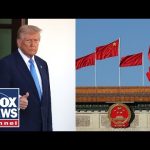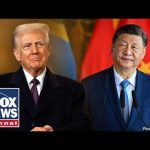The Panama Canal remains a cornerstone of American economic and military strategy, a vital artery for global trade, and a focal point in the ongoing struggle against Chinese expansionism. Built by the United States over a century ago, the canal’s creation symbolized America’s rise as a global power, enabling rapid naval movement between the Atlantic and Pacific Oceans and securing dominance over maritime trade routes. Today, roughly relies on the canal, which handles , making it indispensable for supply chains and national security.
in the region has raised alarms. Since Panama severed ties with Taiwan in 2017, Beijing has invested heavily in infrastructure projects around the canal, including ports operated by state-linked firms like Landbridge Group and Hutchison Ports. These ventures, part of China’s Belt and Road Initiative, aim to embed economic and strategic leverage near a chokepoint critical to U.S. interests. While China does not operate the canal itself, its control over key ports at both ends has sparked concerns about potential espionage or disruptions to U.S. military and commercial transit.
The Trump administration has aggressively countered these moves. In April 2025, Defense Secretary Pete Hegseth declared the U.S. would , securing agreements to prioritize American ships and investing in Panamanian infrastructure to reinforce sovereignty. This includes a recent deal granting a U.S.-led consortium control over critical port operations, ensuring the canal remains a conduit for American interests. President Trump has repeatedly framed the canal as a symbol of American ingenuity, vowing to block Chinese encroachment and reassert U.S. leadership in the hemisphere.
Panama’s government, while publicly denying Chinese control, has taken steps to distance itself from Beijing, withdrawing from Belt and Road partnerships and aligning closer with U.S. security priorities. Nevertheless, the canal’s neutrality—guaranteed by treaties—remains a delicate balance. The U.S. retains the right to defend the waterway against threats, a clause that could trigger military action if China’s presence escalates.
For conservatives, the canal embodies both American exceptionalism and the urgent need to confront China’s global ambitions. As Secretary Hegseth emphasized, . Protecting this strategic asset is not just about trade—it’s about preserving a legacy of strength and deterring adversaries from undermining U.S. primacy in its own backyard.




